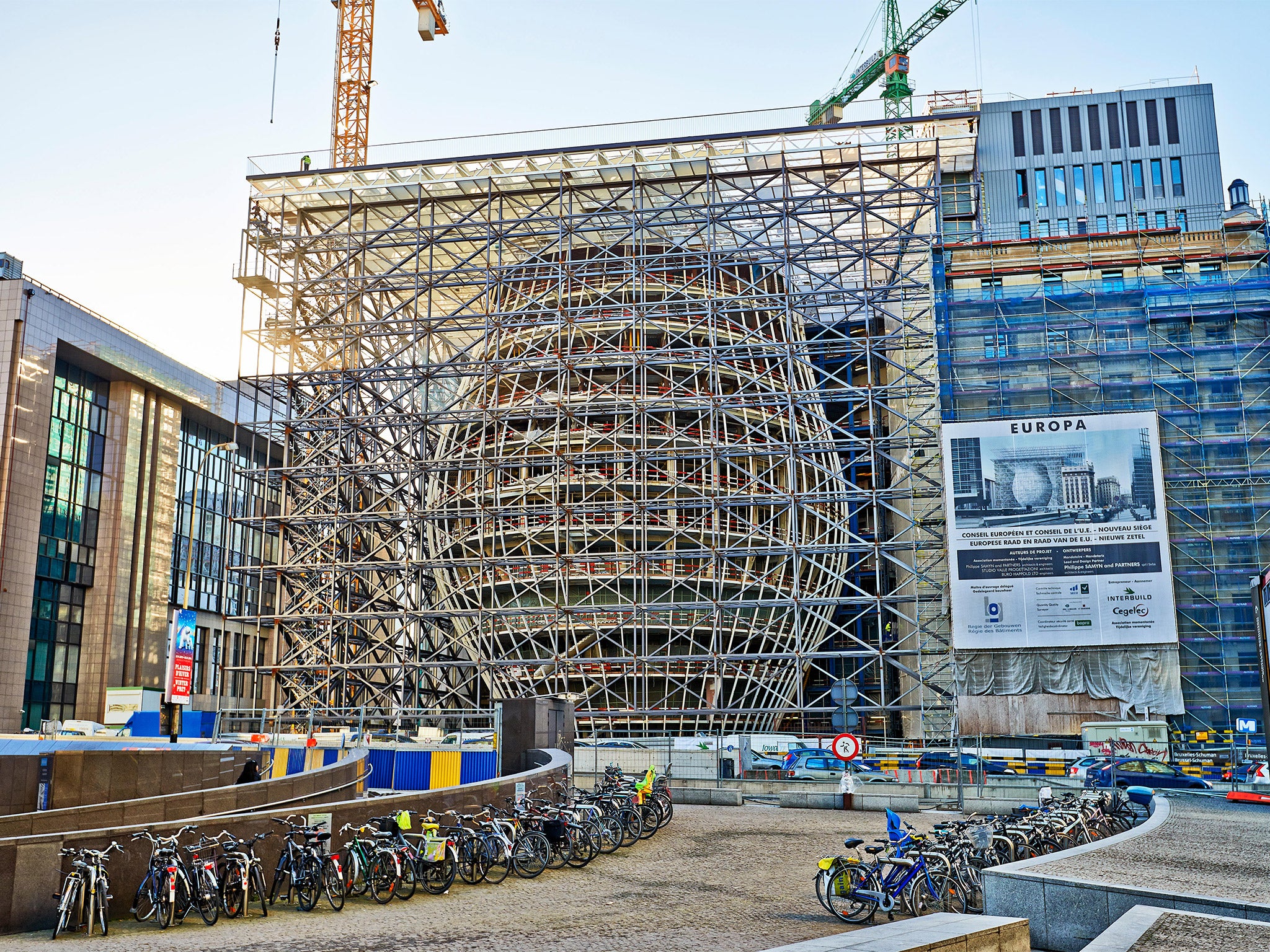Leaders gathered at European summit have more to worry about than David Cameron’s proposed reforms
Whatever deal Mr Cameron manages to bring back from Brussels will barely feature in the EU referendum

Your support helps us to tell the story
From reproductive rights to climate change to Big Tech, The Independent is on the ground when the story is developing. Whether it's investigating the financials of Elon Musk's pro-Trump PAC or producing our latest documentary, 'The A Word', which shines a light on the American women fighting for reproductive rights, we know how important it is to parse out the facts from the messaging.
At such a critical moment in US history, we need reporters on the ground. Your donation allows us to keep sending journalists to speak to both sides of the story.
The Independent is trusted by Americans across the entire political spectrum. And unlike many other quality news outlets, we choose not to lock Americans out of our reporting and analysis with paywalls. We believe quality journalism should be available to everyone, paid for by those who can afford it.
Your support makes all the difference.David Cameron has a big day ahead. Over dinner in Brussels, he will try to start the hard bargaining with the leaders of the other 27 EU states so that he can come home and tell the British public he has made a start in securing sufficient change to justify him asking for a vote for the In campaign in the forthcoming referendum on whether or not to leave the EU.
He has a huge problem, largely of his own making. Imagine what is foremost in the minds of other EU leaders. Angela Merkel is coping with the domestic consequences of her generous decision to take in 800,000 refugees from Syria and elsewhere in the Middle East and Africa. François Hollande is still dealing with the aftermath of last month’s massacre in Paris and though Marine Le Pen’s Front National did not do quite as well as expected in regional elections at the weekend, the electoral threat has not gone away. Spain’s Mariano Rajoy, meanwhile, is grappling with a conundrum that his People’s Party is not reaping the credit for economic recovery, and is facing a serious threat from the new Citizens party.
Hungary’s Viktor Orban claims that his country is being “overrun” by immigrants, and wants the EU to share the burden. Italy and Greece also want to talk about immigration. The Brussels bureaucracy’s top concern right now is whether the Schengen Agreement, which allows free movement across Europe, can last in its present form after the discovery that some of the perpetrators of the Paris massacre were able to travel unhindered across Europe after first entering the EU through Greece. The UK already has opted out of the Schengen Agreement, and therefore Mr Cameron can only contribute to that discussion as an outsider.
With all this happening, who around the table at dinner in Brussels is going to think that the Prime Minister’s vague demands belong at the top of the evening’s agenda? The answer is no one, other than Mr Cameron himself. No other nation asked the UK to hold a referendum on its membership. It was Mr Cameron who needed it to hold the Conservative Party together.
Mr Cameron’s first major task, then, is to try to focus everyone else’s attention on what matters only to him. Next, he will make a pitch to change the rules in a way that will hopefully lower the number of East Europeans coming to the UK to seek work – yet whatever he proposes is virtually guaranteed to be opposed by the countries from where those migrants come. The money that Poles, Lithuanians, Romanians and others send home from the UK is a major contributor to those countries’ wealth. They have no interest in helping Mr Cameron reduce their national income. Reducing the number of migrants would breach one of the EU’s basic principles – the free movement of labour. It would involve changing a treaty, and treaties can only be changed if all 27 member states agree.
The Prime Minister has a marginally better chance of securing a deal over the welfare benefits that immigrants from EU states can claim in the UK. There is support across the EU for the principle that national governments should control who has access to welfare, and changes could probably be introduced with a majority vote in favour. One of the most talked about reforms would prevent migrant EU workers from claiming child benefit in the UK for children growing up in their home countries. That is only a symbolic step that would not save much money and would not address the fears of working-class Britons that migrants to Britain are “taking their jobs”.
This has the look of a public relations exercise. When the EU referendum is held, it will be accompanied by a ferocious political argument during which, it can be safely predicted, whatever deal Mr Cameron manages to bring back from Brussels will barely feature at all.
Join our commenting forum
Join thought-provoking conversations, follow other Independent readers and see their replies
Comments